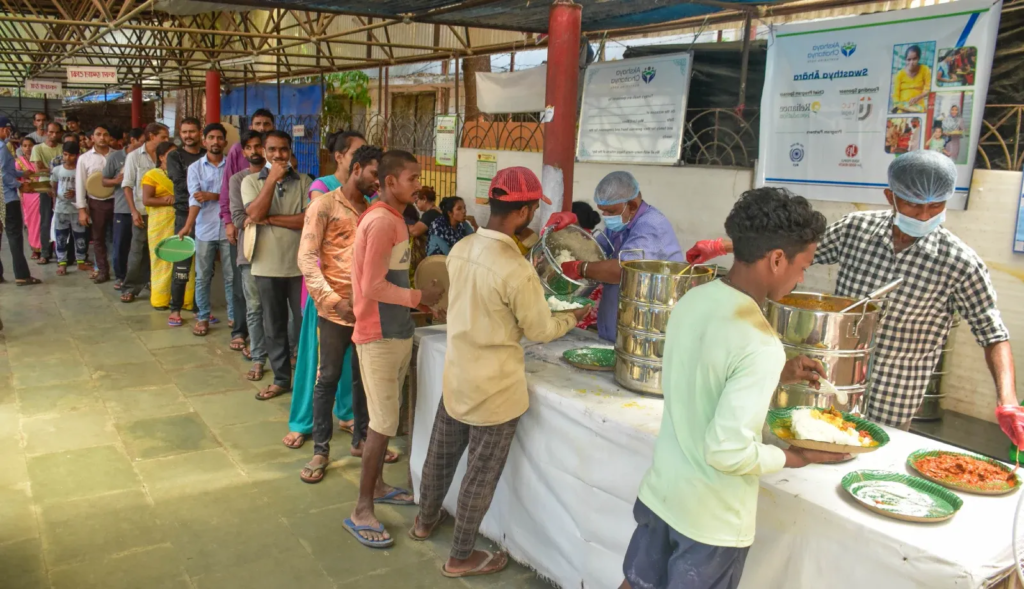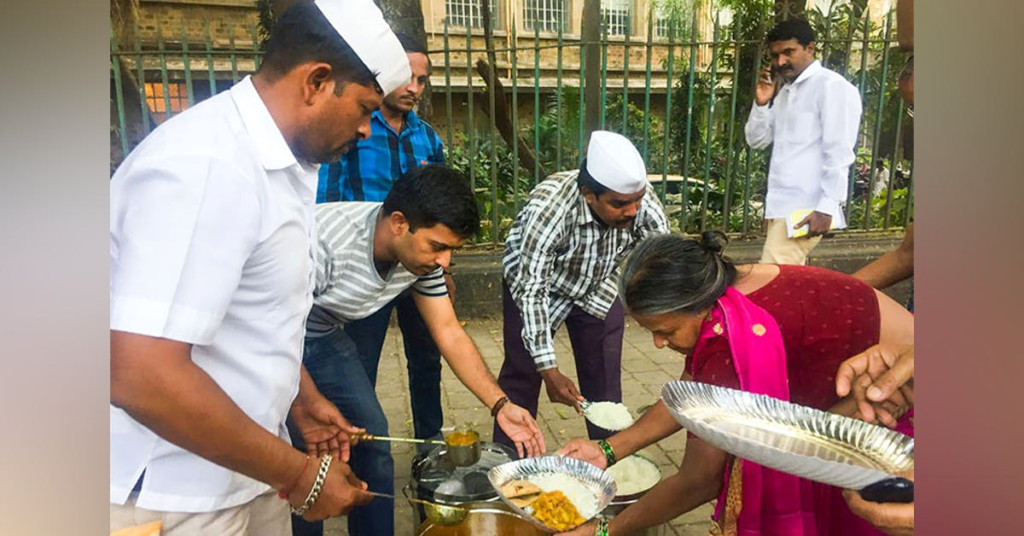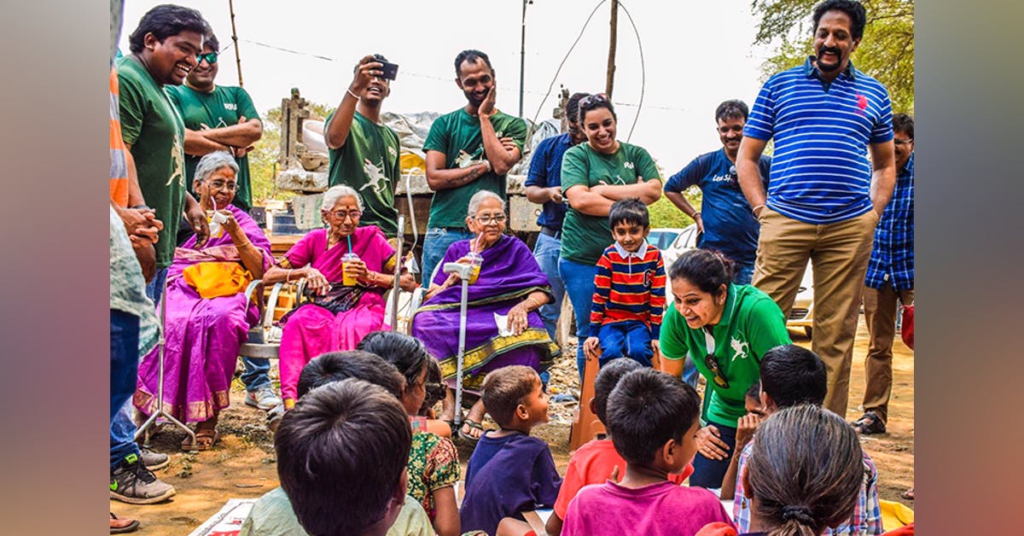Mumbai is India’s financial capital, an apparent city of contradictions: thriving economies and conspicuous consumerist lifestyles versus desperate poverty and starvation. By most estimates, there are millions who spend each day not knowing how or where to meet their hunger-related needs in the city. For hunger, at least, non-profits have also been highly responsive; after all, people can starve without nutrition just as readily as they do on empty streets and barren lots, making proper food preparation possible for these communities.
The article explores the landscape of NGO for Food Donation in Mumbai and their initiatives, the challenges they face, and how people can contribute towards such noble causes.
The Hunger Crisis in Mumbai

Understanding Food Insecurity
Reliable access per day of the year to sufficient quantities of affordable, safe, and nutritious food.” This is the definition of food insecurity. Food insecurity is highly challenging in Mumbai, India, due to rapid urbanization and the residual effects of the COVID-19 pandemic with economic inequality. The percentage of households suffering from food insecurity is estimated to be 14% among urban households.
Role of NGOs in Eradication of Hunger
NGOs act as middlemen for excess available food resources and starving humanity. The tasks that an NGO undertakes vary from the actual collection and delivery to the audience towards awareness generation or making effective attempts for advocacy purposes. A variety of NGOs, under this platform in Mumbai act as catalysts for overcoming starvation.
Notable NGO for Food Donation in Mumbai
Akshaya Chaitanya

Overview: Akshaya Chaitanya is an initiative by the HKM Charitable Foundation with the purpose of ending hunger in Mumbai. The organization operates on hot, nutritious meals for people in need who cannot afford them due to a medical or financial crisis.
Key Programs:
- Swasthya Ahara: This program serves meals to the families of patients in public hospitals across Mumbai. It saves money on food, as the patients’ families don’t have to worry about meals in addition to being under stress from medical emergencies.
- Bal Shiksha Ahara: It fights classroom hunger by providing nutritionally balanced meals to children studying in municipal schools. It improves school attendance and results as the children are better fed.
- Paushtik Ahara: Under this program, meals are actually delivered directly to the homes of the deprived and underprivileged. This ensures that the nutrition supply is maintained for needy families while they are absent from community kitchens.
Impact: Akshaya Chaitanya has done numerous great things in the city of Mumbai to end hunger. The NGO feeds thousands of meals a day from the hygiene-oriented centralized kitchen. Quality and nutritional care proved a very good reason for them to establish themselves as a place from which many collect their food donations.
Website: https://akshayachaitanya.org/
Khaana Chahiye Foundation

Overview: The Khaana Chahiye Foundation is a response to the acute hunger crisis during the COVID-19 pandemic. This NGO was started by a group of concerned citizens who want no one to go hungry in Mumbai.
Key Programs:
- Community Kitchens: Khaana Chahiye runs a women’s self-help group and transgender collective-managed community kitchens that also provide meals as employment for marginalized communities.
- Meal Distribution: During the pandemic, it was feeding millions and is still feeding hundreds of thousands of cooked meals and ration kits to the weaker sections of society, including daily wage earners and migrant laborers.
- Social Cause Awareness and Advocacy: Khaana Chahiye is undertaking a social media movement and several other community engagement activities related to hunger issues.
Impact: From the very first day, Khaana Chahiye has been serving more than 4.7 million meals and distributing thousands of ration kits, thereby being an integral part of the fight against hunger in Mumbai.
Website: https://www.khaanachahiye.com/
Pephands Foundation

Overview: Pephands Foundation serves people experiencing homelessness in Mumbai by linking well-wishers with recipients. The charity values honesty and accountability in the running of its activities.
Key Programs:
- Personalized Food Contributions: The people donating can attach their names and pictures to the packages of food that will be distributed to the recipients.
- Direct Meal Distribution: Pephands has been conducting meal distribution drives at various locations in Mumbai, focusing on areas where there is a higher concentration of homeless people.
- Volunteer Engagement: The organization encourages volunteers to be involved in the preparation and distribution of meals, hence giving them a sense of community involvement.
Impact: Pephands has gained fame for its creativity in food donation. By providing the opportunity for donors to see the outcome of their donation through photographs and updates, it has developed a strong connection between the donor and recipient.
Website: https://pephands.org/
Mumbai Roti Bank

Overview: The Mumbai Roti Bank was set up with the vision of collecting surplus food from a variety of sources and redistributing it to those who will need it. Organizing this initiative will reduce food waste while reducing the instances of hunger.
Key Programs:
- Food Collection Drives: Roti Bank gathers unwanted edible food from marriages, parties, and restaurants so that nothing edible ends up in landfills.
- Central Kitchen Operations: Besides collecting surplus food, Roti Bank also runs a self-established kitchen where freshly prepared meals are distributed.
- Scaling beyond Mumbai: Scaling operations beyond Mumbai, the organization has reached out to other cities such as Nagpur and Chennai.
Impact: Mumbai Roti Bank has been able to redirect tons of surplus food, feeding thousands of people every day. Their focus on sustainability through food recovery makes them stand out in the NGO scene.
Website: https://rotibankfoundation.org/
Annamrita Foundation

Overview: Annamrita Foundation is focused on eradicating hunger among school children all over India, including Mumbai. The organization aims to offer healthy meals through several feeding programs.
Key Programs:
- The Mid-Day Meal Scheme is implemented through the use of Annamrita in schools, making sure that children have at least one nutritious meal during school hours.
- Dry Ration Kits: During this emergency scenario surrounding COVID-19, Annamrita issued dry ration kits to families so they received all the food items they needed.
- Nutrition Awareness Programs: The foundation organizes workshops on nutrition education for parents and children alike.
Impact: The Annamrita Foundation has significantly increased school enrollment and attendance rates while addressing malnutrition among children. Their holistic approach ensures that children not only receive meals but also understand the importance of nutrition.
Website: https://annamrita.org/
Uday Foundation

Overview: Uday Foundation focuses on providing food assistance specifically for underprivileged patients and their families in government hospitals across Mumbai. The organization recognizes that health crises often lead to financial hardships that exacerbate hunger.
Key Programs:
- Food Distribution Outside Government Hospitals: Uday Foundation serves complimentary nutrition meals outside the government hospitals for the families of the patients.
- Poshan to Pathshala Initiative: Here, proper nutrition for children belonging to economically challenged backgrounds is assured, in addition to educating them.
- Volunteering Activities: Uday includes volunteers from diverse sections who provide meal distributions.
Impact: The lifeline approach at Uday Foundation has really worked for families as it makes targeted approaches that deal with immediate hunger and eventually aid long-term health outcomes in the patients and their families.
Website: https://www.udayfoundation.org/about-us/
Robin Hood Army

Overview: Robin Hood Army is an organization working against hunger through volunteering by re-distributing surplus food collected from restaurants and events to hungry people directly. Their model majorly relies on community involvement and volunteerism.
Key Programs:
- Food Redistribution Drives: Volunteers collect surplus food from restaurants after closing time or events such as weddings and deliver the same directly to homeless shelters and slums.
- Community Involvement Activities: The group raises public awareness about the existence of hunger and also mobilizes the grassroots population to contribute positively towards eradicating food losses.
- Youth Leadership Projects: The Robin Hood Army engages the passionate youth in its volunteering team by giving them avenues for leading community activities.
Impact: The Robin Hood Army has successfully distributed millions of meals since it began, functioning through grassroots power. This approach not only empowers individuals but also works on systemic issues pertaining to hunger.
Website: https://robinhoodarmy.com/
The Food Donation Process
- Gathering
This step aggregates surplus food from different kinds of sources:
- Restaurants and Caterers: Most restaurants have leftover food either from events or as part of the daily routine that they gladly donate.
- Community Events: Wedding feasts, festivals, and other community events yield more food than the attendees can consume.
- Grocery Stores: Foods are donated in significant quantities by grocery stores since they are unsold but eatable.
- Sorting and Preparation
- Sorting is the other process after which the food is prepared by the volunteers so that only qualified food is available to any person.
- Meal Preparation: NGO’s prepare their meals from raw ingredients prepared from surplus ingredients accumulated from various collections.
- Direct Distribution
- Some organizations ensure this process is possible by distributing some meals directly; they take hot meals to particular slums.
- Community Kitchens: Some run community kitchens where people can come to get meals.
- Feedback and Improvement
NGOs usually solicit feedback from the beneficiaries:
- Surveys and Interviews: Collecting information enables organizations to know whether their programs are working or not.
- Adjustments Based on Feedback: This information may help improve the meals being served or the way of distributing them.
Challenges Faced by Food Donation NGOs
While NGOs play an essential role in fighting hunger, they face a number of challenges:
1. Logistics and Transportation
Transporting large quantities of food safely is a significant challenge:
- Infrastructure Issues: Poor road conditions can delay deliveries.
- Cold Chain Maintenance: Keeping perishable items at safe temperatures is crucial but challenging without proper facilities.
2. Awareness and Engagement
Many potential donors remain unaware of how they can contribute:
- Public Awareness Campaigns Needed: Outreach efforts can be increased to educate communities about the opportunities for food donation.
- Youth Volunteers: The mobilization of youth can enhance volunteer numbers but requires effective engagement strategies.
3. Regulatory Barriers
NGOs face difficulties in navigating legal requirements:
- Food Safety Regulations: Compliance with health regulations is necessary but complex.
- Tax Incentives for Donors: Businesses often require clear tax benefits that may not be communicated effectively.
How to Help
Those willing to assist food collection programs in Mumbai can undertake the following:
- Money Contributions
Money donations enable NPOs to buy groceries and sustain activities:
- One-Time vs. Monthly Recurring: Donors may opt for a single contribution or establish a monthly recurring donation according to their giving ability.
- Volunteer Time
Several organizations are open to volunteers for meal preparation and distribution activities:
- Hands-On Opportunities: Volunteering directly interacts with the beneficiaries while making a difference.
- Skill-Based Volunteering Options: Professionals can lend their expertise (for example, marketing or finance) to help organizations run more efficiently.
- Organizing Food Drives
Organizing local food drives can help collect surplus food from communities or workplaces:
- Collaboration with Local Businesses: Partnering with local businesses can amplify efforts during festive seasons or community events.
- School Activities: Involving schools in collecting campaigns makes the children understand the concept of social obligation in a positive way.
- Word of Mouth
Raising awareness of hunger issues brings more people on board:
- Social Media Campaigns: Platforms like Instagram or Facebook can make an effective word about hunger issues within a community.
- Community Workshops or Discussions: The talk on hunger challenges will create an understanding in others of how they can make a difference.
The fight against hunger in Mumbai is a collective effort requiring participation from individuals, businesses, and organizations alike. NGOs in Mumbai like Akshaya Chaitanya, Khaana Chahiye Foundation, Pephands Foundation, Mumbai Roti Bank, and Mangalam Charitable Foundation are at the forefront of this battle—providing essential services to those who need them most.
By supporting these organizations through donations or volunteering time, individuals can make a significant impact on alleviating hunger in one of India’s largest cities. Be it a monetary contribution, volunteering time, or spreading the message, an individual can contribute meaningfully to this noble cause. It’s, after all, the future that awaits us, struggling with economic life and social disparities, and we must work together to ensure that no one goes hungry in this city of dreams called Mumbai.
Leave a Reply